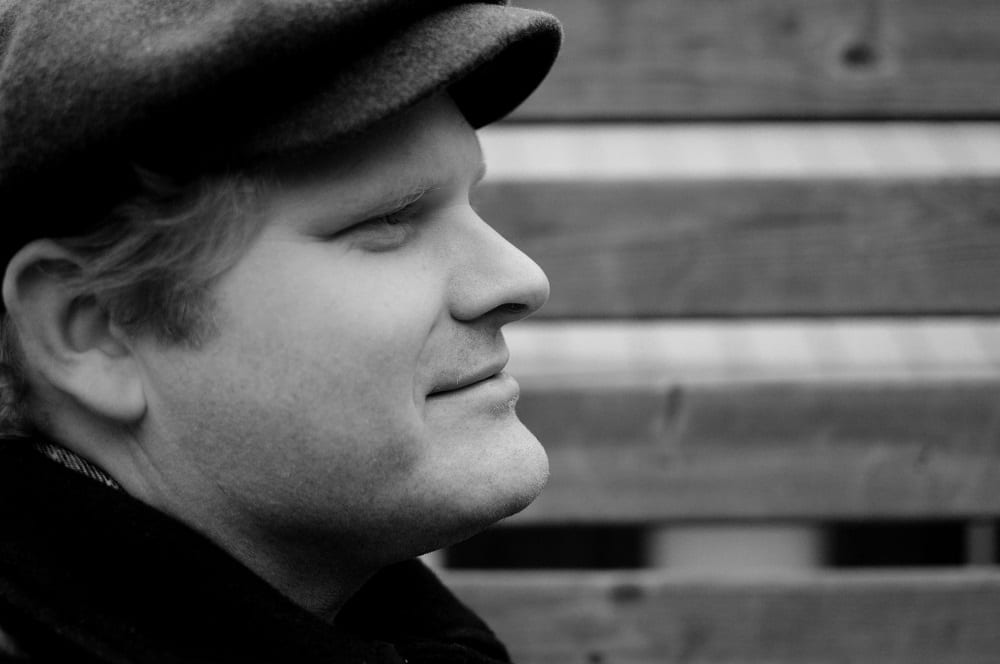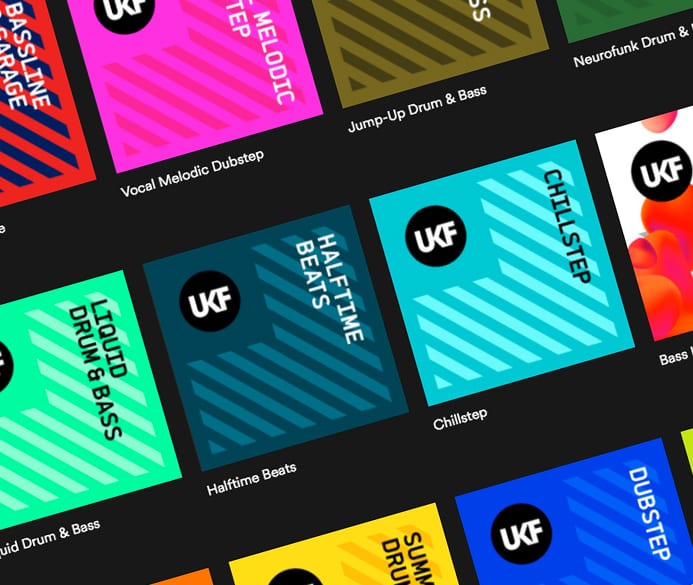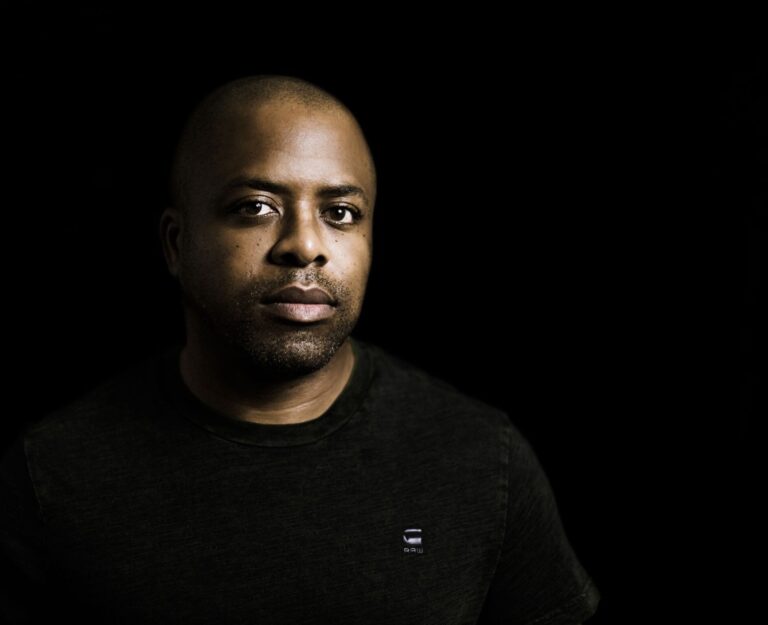Read Between The Lines: a crucial slice of advice for the great unwoked AND the title of Klute’s eighth album. An album that could just be his most accomplished LP to date.
Taking more time between albums than he ever has done since his debut LP landed in 1998, digesting and reflecting the exacerbating and confounding political and media climate along the way, Klute (real name Tom Withers) believes he’s dived deeper into his creative process than on previous albums. Shutting out scene noise and not bringing in any peers or friends for feedback, it’s the sound of a man flexing a cool sub-zero on the give-a-fuck-meter.
It’s business as usual in this sense: Ever since his punk band Stupids emerged in the mid 80s, right through his techno adventures throughout the early 90s, his role in the Ipswich’s substantial contribution to drum & bass (Certificate 18, Digital, Spirit, Photek, Redeye Records) and his longstanding and highly respected label Commercial Suicide, Tom has consistently carved his own path and never appeared to be swayed by trend or hype.
The same can be said for Read Between The Lines. The sound of the album he wanted to make, it’s dense in layers, details and shades. From the heavenly soul surges of Angel Makers to the iced-out early Warp style techno of Accept Our Power; the paranoid Blue Note blunderbuss Life Spits Out The Living to the Terry Riley-esque ambience of We Will Return; Read Between The Lines is broad in scope yet consistent in theme and textures. It sits in its own time and its own universe while remaining fully rooted in the real world by way of cultural references, context and the unavoidable influence of the current climate.
In over 20 years of drum & bass productions, Klute has never dropped a bad album. But talking to him, you get the strong feeling he’s invested more time and energy into this than anything he’s done before. Here’s what he has to say…
Last time you were on this site Keeno compared you to Debussy.
I was! It was interesting because I come from a classical family – my sisters were classically trained, my parents played it all the time but I sidestepped it and got into rock when I was growing up. I only really got into any level of classical theory when I got into jazz. So it was interesting to hear Keeno’s perspective. I still consider classical within other frameworks such as movie scores or in jazz. I’ve had little dabbles into real classical music in the past but truly penetrating that world would involve a deep study. I’m prone to my throwing myself in at the deep end and really immersing myself into a style so it’s only a matter of time…
What was the last odyssey you went on in this way?
Oh so many. The last few have been soundtracks, British jazz and British lovers rock. With everything, there’s some incredible stuff in every style and also some incredible amounts of things I really don’t like. But that’s the beauty of digging. Actually I’m going through quite a 90s techno phase but that’s more of a revival than a study. Stuff like Speedy J and old Warp releases. Future Beat Alliance.
You can hear that influence on the album – especially on tunes such as The Power Of The Light and Clappy…
That’s my computer roots. I originally came through on punk but my synthesis and sequencing roots all came through techno until I made a conscious decision to go in wholeheartedly into drum & bass.
What inspired that decision?
I loved the music but also there were some very influential people in Ipswich at the time. Guys like Paul Arnold who ran Certificate 18, Redeye Records guys like Photek, Digital, Spirit. It was a really exciting scene with loads going on, everyone working on different nights and radio shows and making records. It was really inclusive. I’d come over from America, where I was living at the time, and was shocked by it all.
I guess the DIY spirit resonated with your punk background?
Definitely. I’d been in some type of no man’s land of musical exploration after the punk thing died in the late 80s. I hadn’t paid much attention to acid house but when raves took a different direction and became a lot more free and open and there was a lot of fusion and soundsystem culture and, as you say, a lot more DIY stuff, then I was fully paying attention.
Can you still see evidence of that spirit now, over 20 years later?
Yeah, people are still doing things and learning and making and creating things of their own. It’s still evident but I think we’re just subject to an abundance of information that’s constant so it’s harder for anyone to be heard.
How do you personally deal with input overload? Especially when it comes to writing…
By trying my hardest to completely shut everything else out and really focus on what I’m doing and the process and get deep into it so nothing else matters. Not ask friends or associates for feedback – just getting on with it and really digging into my own vision and process and creating something that is completely my own.
Would you say that you did that even more than you have on the last few albums? The Draft and Music For Prophet?
I always felt Music For Prophet was a half album but I’ve gone back to it and realised it’s better than I recalled. I was going through a lot of personal stuff at the time so that clouded my judgement.
I think that album was interesting as it was the last one to separate the drum & bass and techno over two CDs.
Well the two CDs was a lot like that abundance of information we have these days. I thought it was too much to ask people to listen to two whole CDs of my music. So I spend more time streamlining the arrangement of the albums so one CD has both the sides I cover. It’s been an interesting challenge because it’s an inherent part of what I do. Not just a tokenistic downtempo track here and there so I played around with lots of arrangements and tracklists. It makes sense to me, I hope it makes sense to listeners. I know albums feel like they are a dying breed right now, but it’s important to get the details right.
Albums will never die. There’s still a huge interest in them from fans when we report on them and for artists they’re still the ultimate way to express yourself.
They are. And I think there are some artists working on some incredibly detailed, well considered and cohesive pieces. Just consumers are more focused on the luxury of technology which, at present, is playlists and streaming. The beauty of music transcends everything though and people who are really into music are still paying attention.
Is the title of the album is a reminder to pay attention and to encourage the skill of critical thinking?
Most of my titles are political or cultural in one way or another. But it also reflects the nature of what my music is. It’s densely layered and I want you to discover different things on every listen. But yeah it’s primarily triggered by what’s happening culturally and politically. Brexit had a huge influence on me and sent me into the studio to try and work through what I was feeling. It generated an energy.
In what way?
I don’t know what the energy was exactly but I had a very tangible feeling or urge to write. Some news stories are beginning to develop into Eastenders style plotlines to me. We can’t take things at face value – work out what people are getting at. Question their motives. We’re being led down a dark garden path. Something suggests to me that this was the plan all along.
Can you pinpoint any sounds or tune you made on the Brexit results day?
Yeah I remember it being very sunny. Totally at odds with the news. I was working on a track called Earth Spits Out The Living. I had gone through a period of really sweating away to make sense of what I was doing on the album, Earth Spits Out The Living just came together incredibly naturally and made sense straight away.
That’s interesting. Earth Spits Out The Living is densely layered. Those weird voices in the background for example. I guess all the layers are a call for longevity?
Yeah effectively. When I finished it I said to a friend ‘I think I’ve made the record you’re not supposed to make any more’ Some of my favourite records smack you in the face first time and stay with you forever but most of the really long lasting ones have taken me ages to really appreciate and have taken ages to mature and settle within themselves. I think, looking back over my Klute albums, there’s nothing of the particular era they were made in.
Is that a quality you look for in artists on Commercial Suicide? Or do artists gravitate towards you because of that?
A bit of both I’d say. Recently my focus for the label has been working with like-minded people but before I was just signing stuff I liked at the time. Either way, I’ve only seemed to work with really nice, like-minded people. It’s important to have this sense of individuality especially as drum & bass seems incredible divided into these camps. Commercial Suicide has also sat somewhere in between in this no rules territory and luckily there still seems to be a place for labels like us.
More now than there has been – a lot of artists setting up their own labels and there’s a real call for independence, variety and authenticity. In the clubs, too.
Yes, Rupture and Launch are some of the most established organic underground nights in that way. Not shouting and screaming about it, just doing the very best they can and word spreading through their own networks. They’re great organic successes that we used to see all the time. It’s that community thing; people never miss a Launch because they’re part of that and they know they’ll miss out. That’s the same spirit as Blue Note – knowing you’d go out and hear things that make you go ‘what the fuck is this?’ and actually go up to the decks and ask what it is.
Who are the main culprits who make you do that?
There aren’t any specific usual suspects any more but I did a back to back with Doc Scott the other day and almost every tune was a ‘what the fuck mate?’ Situation. J:Kenzo, Spirit, The Invaderz… The list goes on. And as long as there are people making those types of tracks, we are in a good place.
Klute’s good places: Facebook / Twitter / Soundcloud
Klute – Read Between The Lines is out now on Commercial Suicide


